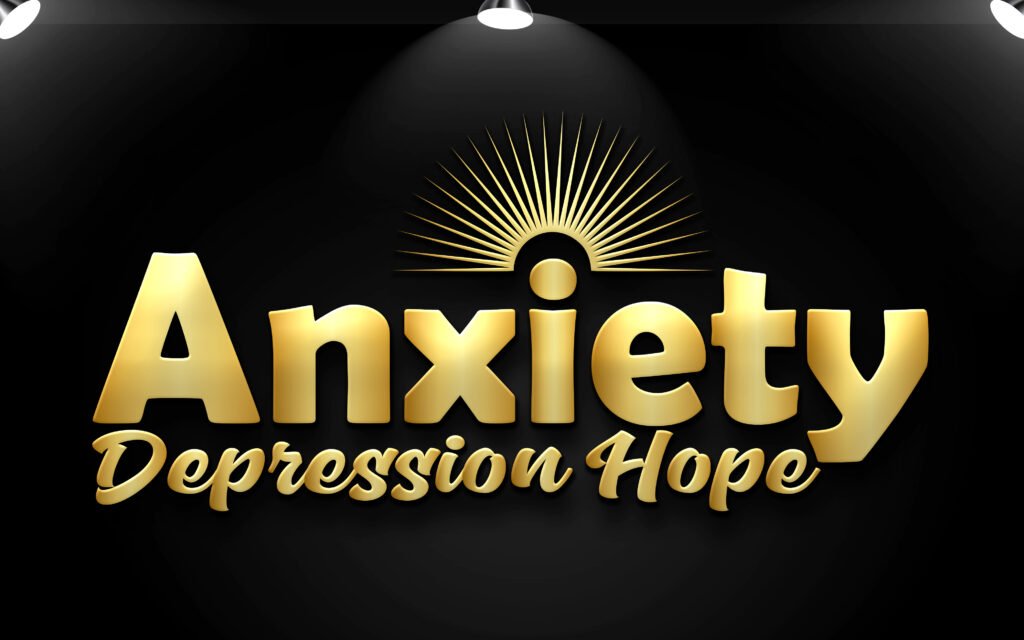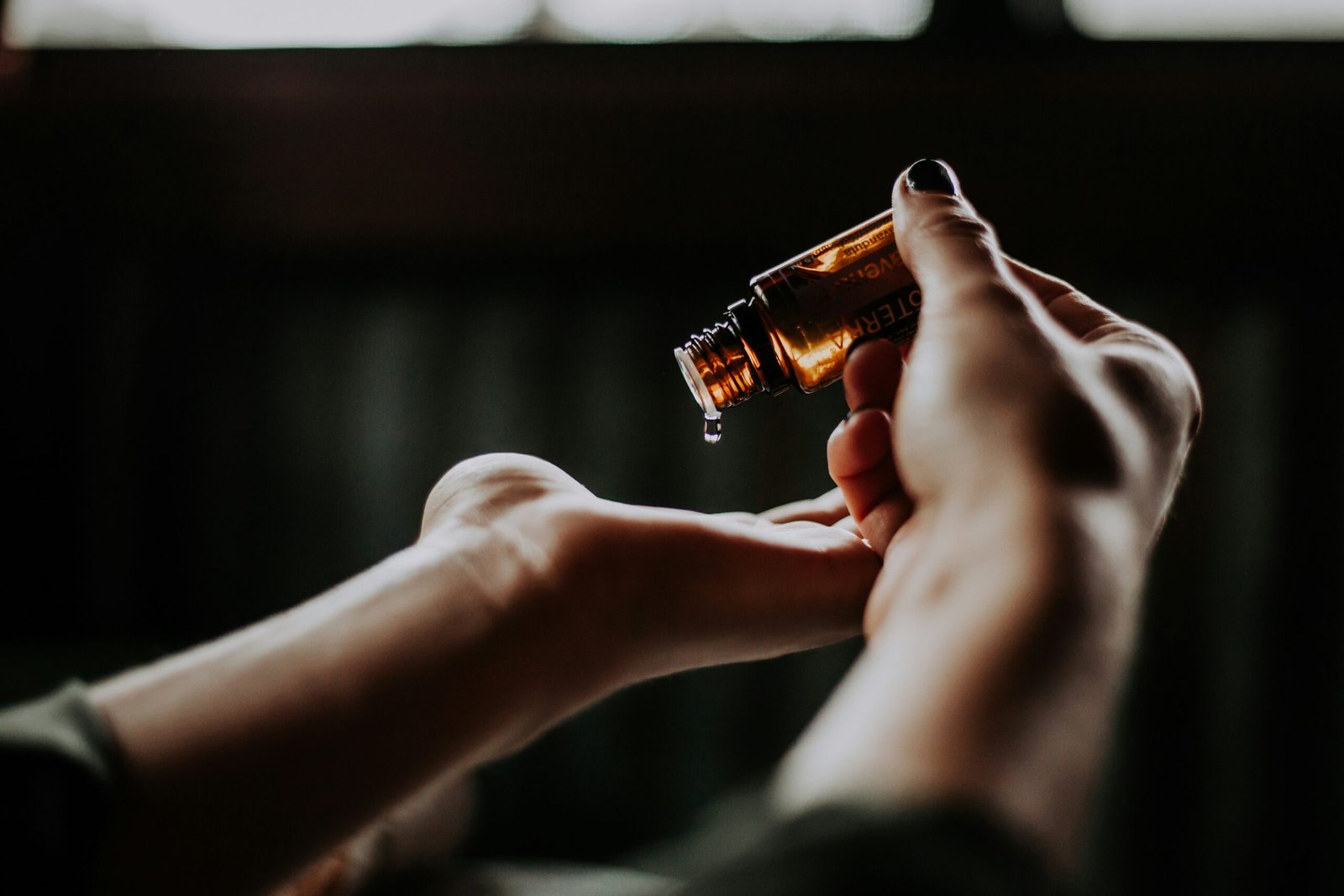20 Proven Supplements for Anxiety Relief

Introduction to Anxiety and Its Impact
Anxiety is a prevalent mental health concern, affecting millions of individuals globally. It encompasses a range of disorders, including generalized anxiety disorder, panic disorder, and social anxiety disorder, among others. Statistics reveal that approximately 18% of adults in the United States experience anxiety disorders each year, showcasing the widespread nature of this issue. Symptoms of anxiety can vary significantly, manifesting as excessive worry, restlessness, irritability, and difficulty concentrating.
The impact of anxiety on daily life can be profound, influencing various aspects such as professional performance, personal relationships, and overall quality of life. Individuals grappling with anxiety often report feelings of apprehension and tension, which can lead to physical symptoms like increased heart rate, sweating, and fatigue. These physiological responses may elevate the burden of anxiety, prompting further distress and potentially creating a vicious cycle of anxiety symptoms.
Moreover, the emotional ramifications of anxiety are considerable. Those affected may endure feelings of isolation, hopelessness, and inadequacy, leading them to withdraw from social situations or avoid activities they once enjoyed. This common mental health issue not only takes a toll on emotional well-being but also affects physical health over time, contributing to conditions such as hypertension and cardiovascular diseases.
By acknowledging the pervasive nature and significant effects of anxiety, it becomes imperative to explore various avenues for relief. While traditional treatment options such as therapy and medication are effective for many, there is growing interest in natural supplements that may offer additional support. Understanding anxiety and its ramifications helps to highlight the importance of addressing this issue holistically and recognizing the potential role of natural remedies in alleviating symptoms.
Understanding Supplements: What Are They?
Dietary supplements are products designed to enhance the nutritional content of the diet and support overall health and well-being. They come in various forms, including tablets, capsules, powders, and liquids, and can contain a wide array of ingredients, including vitamins, minerals, herbs, and other natural compounds. Vitamins and minerals are essential nutrients that the body requires to function optimally. They play crucial roles in numerous biological processes, contributing to energy production, immune function, and the maintenance of healthy skin and bones.
Herbs, on the other hand, are naturally occurring plants used for their medicinal properties. Many traditional practices, such as herbalism, harness the potential of these plants to enhance health. Other natural compounds, including amino acids, probiotics, and fatty acids, can also be classified as dietary supplements. Each of these components offers distinct benefits and can support various aspects of health.
In the context of mental health, particularly anxiety management, supplements can provide supportive effects. For example, certain vitamins, such as B-complex vitamins and vitamin D, have been linked to a reduction in anxiety symptoms, as they are essential for neurotransmitter synthesis and regulation. Similarly, minerals like magnesium and zinc play critical roles in brain function and may alleviate stress responses when supplemented adequately.
Moreover, several herbal supplements, such as chamomile, lavender, and ashwagandha, have gained popularity for their calming effects and potential to reduce anxiety. It is vital to note that while dietary supplements can be beneficial, they should complement a well-balanced diet and not replace conventional anxiety treatments or therapies. Therefore, when considering supplements for anxiety relief, it is advisable to consult with a healthcare professional to tailor an approach that aligns with individual health needs and conditions.
The Science Behind Supplements for Anxiety
Anxiety disorders are characterized by excessive worry and fear, often linked to an imbalance of neurotransmitters in the brain. Neurotransmitters are chemical messengers that play crucial roles in regulating mood and behavior. For instance, serotonin is often referred to as the “feel-good” neurotransmitter due to its association with happiness and well-being. Low levels of serotonin are frequently observed in individuals suffering from anxiety, leading to the exploration of various supplements that may help restore balance.
One of the notable pathways influencing anxiety is the brain-gut connection, a complex communication network between the gut and the brain. The gut microbiome is increasingly recognized for its role in mental health, as it can influence neurotransmitter production, including serotonin. Certain dietary supplements aim to support gut health, therefore potentially improving overall mental health. Probiotics and prebiotics are examples of supplements that may enhance gut microbiota composition, thereby indirectly influencing anxiety levels.
Additionally, various compounds found in supplements have been studied for their anti-anxiety properties. For instance, omega-3 fatty acids, prevalent in fish oil, have demonstrated the ability to modulate neurotransmitter systems, promoting a more balanced mood. Similarly, magnesium has been documented for its role in regulating stress responses. Deficiencies in these nutrients may contribute to heightened anxiety symptoms, and their supplementation could prove beneficial.
Research on specific herbal supplements, such as ashwagandha and chamomile, has also provided insights into their effects on the central nervous system. These natural agents appear to influence stress hormone levels and facilitate relaxation responses. Understanding the mechanisms through which these supplements operate on neurotransmitter levels and the brain-gut axis lays the foundation for their application in anxiety management.
Top 20 Proven Supplements for Anxiety Relief
Anxiety is a prevalent condition that affects millions worldwide, and many individuals turn to supplements to support their mental well-being. Numerous studies have explored various supplements that may offer anxiety relief. Here are 20 proven supplements that have garnered attention for their potential effectiveness in alleviating anxiety symptoms.
Ashwagandha: This adaptogenic herb is renowned for its ability to reduce stress and anxiety levels. Research indicates that it may lower cortisol levels, the hormone associated with stress.
Lavender: Often used in aromatherapy, lavender has shown promise in reducing anxiety symptoms. Studies suggest that it may help lower heart rate and improve mood.
B-Complex Vitamins: These vitamins play a crucial role in brain health and mood regulation. B-complex vitamins, particularly B6 and B12, have been associated with lower levels of anxiety.
Vitamin D: A deficiency in vitamin D can affect mood and may contribute to anxiety disorders. Research indicates that maintaining adequate levels can improve emotional well-being.
Magnesium: This mineral plays a vital role in neurotransmitter function and is often linked to anxiety relief. Low magnesium levels are associated with higher anxiety levels.
Zinc: Zinc deficiency has been correlated with increased anxiety. Supplementing with zinc may enhance mood stability and reduce anxiety symptoms.
Omega-3 Fatty Acids: Found in fish oil, omega-3 fatty acids have anti-inflammatory properties and are believed to support brain health. Studies suggest they can help alleviate anxiety symptoms.
L-theanine: An amino acid found in green tea, L-theanine is known for promoting relaxation without sedation. It may help increase alpha-wave activity in the brain.
Kava Kava: This herb has been traditionally used for its calming effects. Research indicates that kava may reduce anxiety levels, particularly in social anxiety.
Chamomile: Chamomile, often consumed as tea, has been studied for its potential anti-anxiety effects. The calming properties may help decrease anxiety symptoms.
Passionflower: Used in various herbal remedies, passionflower is believed to increase gamma-aminobutyric acid (GABA) in the brain, which can help promote relaxation.
valerian root: Commonly used for insomnia, valerian root may also aid in reducing anxiety due to its sedative effects.
Rhodiola Rosea: This adaptogen may enhance stress resilience and reduce anxiety. Research suggests it can improve mood and cognitive function.
5-HTP: 5-Hydroxytryptophan is a precursor to serotonin and may help improve mood and reduce anxiety when taken as a supplement.
CBD Oil: Cannabidiol (CBD) has gained popularity as a natural remedy for anxiety relief. Studies suggest it may help decrease anxiety levels and improve overall mood.
GABA: Gamma-aminobutyric acid is a neurotransmitter that promotes relaxation. Supplementing with GABA may help reduce levels of anxiety.
Holy Basil: Considered an adaptogen, holy basil may help combat stress and anxiety by modulating stress response and supporting adrenal function.
Probiotics: Emerging research suggests a connection between gut health and mental well-being. Probiotic supplementation may help reduce anxiety symptoms by supporting gut microbiome health.
Vitamin C: Known for its immune-supporting properties, vitamin C may also play a role in reducing anxiety, as it is involved in neurotransmitter function.
Each of these supplements has shown promise in various studies for alleviating anxiety. However, it’s essential to consult with a healthcare professional before starting any new supplement regimen. Individual responses may vary, and a well-rounded approach that includes lifestyle changes, therapy, and supplementation can yield the best results in managing anxiety effectively.
Choosing the Right Supplement for You
Selecting the appropriate supplement for anxiety relief demands careful consideration of several key factors tailored to individual needs. First and foremost, it is essential to evaluate any pre-existing health conditions. Individuals suffering from chronic illnesses or specific health issues should prioritize options that complement their medical history. For instance, some supplements may exacerbate certain conditions, making it crucial to research how they interact with one’s health profile.
Dietary restrictions also play a pivotal role in the selection process. Many supplements contain ingredients that may not align with personal dietary choices, such as veganism or allergies to specific substances. Therefore, it is advisable for individuals to read labels meticulously and opt for supplements that are compatible with their dietary preferences. Options that are plant-based or hypoallergenic can provide suitable alternatives for those with restrictions.
Another critical consideration involves potential interactions with prescribed medications. Several supplements can affect the efficacy of medications, leading to either diminished effectiveness or adverse effects. For instance, St. John’s Wort is known for its antidepressant properties but can interact negatively with various prescription medications. Individuals on medication must be particularly cautious and should always discuss their supplement choices with a healthcare provider.
Consulting a healthcare professional before embarking on any new supplement regimen is highly recommended. Healthcare providers can offer personalized advice by assessing individual health profiles and deficiencies. This professional guidance ensures a well-rounded approach to choosing supplements, significantly enhancing their effectiveness in managing anxiety. Overall, being vigilant in every aspect will enable one to select the most suitable supplement, ultimately aiding in better mental well-being.
Dosage and Safety Guidelines
When considering the use of supplements for anxiety relief, it is essential to adhere to recommended dosages and safety guidelines to ensure efficacy and minimize potential risks. Each supplement may have varying optimal dosages based on individual needs, age, weight, and health conditions. Therefore, it is advisable to consult with a healthcare professional before starting any supplement regimen.
For example, Ashwagandha, a well-known adaptogen, is often recommended in doses ranging from 300 to 500 mg of standardized extract taken once or twice daily. Another common supplement, L-Theanine, can be taken in doses of between 100 to 400 mg daily, depending on the severity of anxiety symptoms and individual tolerance. Similarly, for Omega-3 fatty acids, standard dosages of 1,000 to 2,000 mg per day can provide anxiety relief while also supporting overall brain health.
While supplements can be beneficial, it is crucial to remain aware of possible side effects. For instance, excessive intake of certain vitamins and minerals, such as Vitamin B6 or Magnesium, may lead to nerve damage or gastrointestinal disturbances. Moreover, supplements like St. John’s Wort can interact with medications like antidepressants and birth control pills, highlighting the importance of discussing any supplements with a healthcare provider.
It is vital not to exceed recommended dosages without professional guidance, as overuse can lead to adverse effects and diminish the supplements’ potential benefits. Keeping a log of any supplements taken, along with noted effects, can help monitor progress and any side effects. By following appropriate dosage guidelines and safety protocols, individuals can approach their anxiety management more effectively and securely.
Natural Lifestyle Supporting Anxiety Management
Managing anxiety effectively often requires a holistic approach that encompasses various lifestyle changes alongside the use of supplements. Firstly, maintaining a well-balanced diet plays a crucial role in supporting mental health. Nutrient-rich foods, including fruits, vegetables, whole grains, and healthy fats, can positively impact mood and promote overall well-being. Specific nutrients such as omega-3 fatty acids found in fish, magnesium from leafy greens, and B vitamins contribute to brain health and help regulate anxiety levels.
In addition to dietary changes, engaging in regular physical activity is another fundamental aspect of managing anxiety. Exercise has been shown to release endorphins, which act as natural mood lifters. Activities such as walking, jogging, or yoga not only provide physical benefits but also foster a sense of accomplishment and improve self-esteem, which may help alleviate anxiety symptoms.
Mindfulness practices, including meditation and deep-breathing exercises, are essential tools to incorporate for effective anxiety management. These practices encourage individuals to focus on the present moment, thereby minimizing racing thoughts that often accompany anxiety. Regular engagement in mindfulness can lead to reduced stress levels and enhance emotional regulation, making the daily challenges of anxiety more manageable.
Lastly, good sleep hygiene cannot be overlooked as a vital component of anxiety relief. Establishing a calming bedtime routine, ensuring a comfortable sleep environment, and maintaining consistent sleep patterns can significantly enhance the quality and duration of sleep. Quality sleep is fundamental for regulating mood and supporting cognitive function, ultimately benefiting those who experience anxiety.
Incorporating these lifestyle changes alongside the use of supplements including herbal remedies and vitamins, can create a synergistic effect that results in more effective anxiety management. By addressing both the physical and mental aspects of anxiety, individuals can pave the way toward a healthier, anxiety-free life.
Integrating Supplements into Your Anxiety Management Plan
Incorporating supplements into your anxiety management plan can be a valuable strategy for enhancing overall emotional well-being. However, it is essential to approach this process systematically to ensure optimal results. First and foremost, creating a balanced routine that encompasses not just supplements but also lifestyle modifications—such as regular exercise, a nutritious diet, and adequate sleep—is crucial. These elements work synergistically to alleviate anxiety symptoms and improve mental health.
When selecting specific supplements for anxiety relief, it is important to consider individual needs and preferences. Prior to starting any new supplement, consult with a healthcare professional to discuss its potential benefits and risks. This ensures that your chosen supplements will complement any existing treatments or medications while minimizing the likelihood of adverse interactions. Once you have established a supplementation strategy, make it a point to track your progress. By maintaining a journal that details your mood fluctuations, anxiety levels, and overall well-being, you can better understand the effectiveness of the supplements and make necessary adjustments.
Flexibility in your approach will be vital. Monitor how your body responds to the chosen supplements, as individual reactions may vary due to factors such as genetics, lifestyle, and stress levels. If you notice minimal improvement after a reasonable trial period, consider experimenting with different types or dosages of supplements. This trial-and-error approach allows for a more personalized anxiety management plan. Additionally, it may also be beneficial to combine supplements with complementary therapies, such as cognitive-behavioral therapy (CBT) or mindfulness practices. Integrating supplements thoughtfully within a broader strategy can facilitate a more sustainable and effective way to address anxiety in daily life.
Conclusion: Empowering Your Journey to Calmness
In this exploration of supplements for anxiety relief, we have highlighted a diverse array of options that can aid in managing anxiety symptoms. Each supplement reviewed possesses unique properties that may assist in alleviating anxiety, from omega-3 fatty acids and ashwagandha to magnesium and L-theanine. The significance of informed decision-making cannot be overstated; understanding how these supplements work, their potential benefits, and the importance of aligning them with one’s individual health needs is essential in the quest for mental well-being.
Moreover, it is imperative to recognize that supplements are not standalone solutions. They should be part of a comprehensive approach to mental health that incorporates lifestyle improvements and, when necessary, professional guidance. Strategies such as regular physical activity, mindfulness practices, and adequate sleep contribute significantly to overall anxiety management and must be integrated alongside any supplementation regimen. Such holistic methods serve to empower individuals, providing them with tools to better navigate their mental health challenges.
As you consider your path towards anxiety relief, it is important to remain hopeful and proactive. Embracing the knowledge gained from this post can help you make informed choices that align with your health goals. Remember that you are not alone in this journey; seeking support from healthcare professionals can provide additional guidance tailored to your specific needs. By taking charge of your mental health with the right supplementation and lifestyle changes, you can foster a greater sense of calm and resilience. Together, let us strive towards a more tranquil and balanced life.







